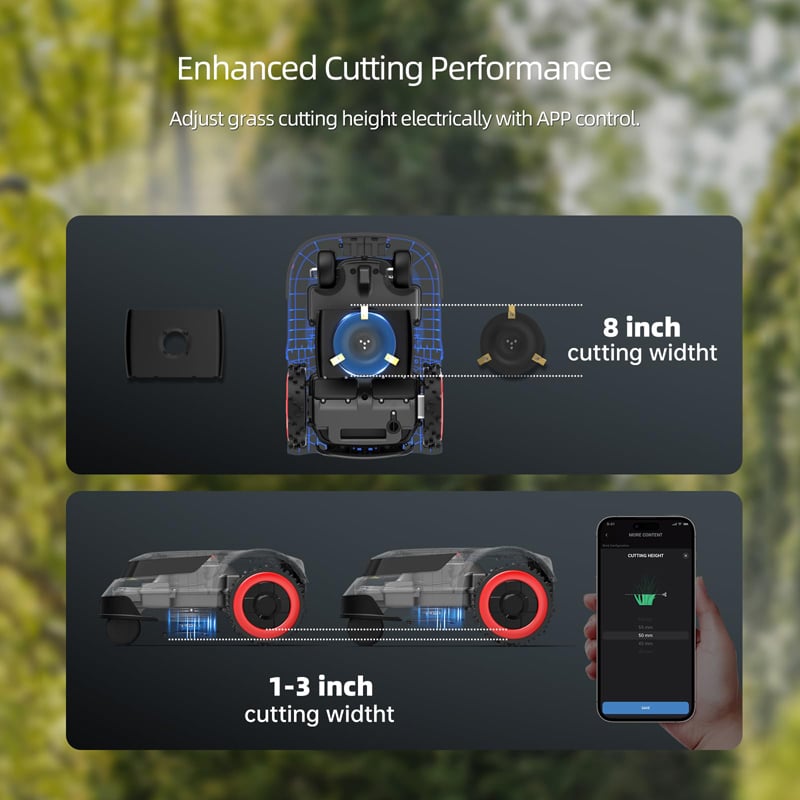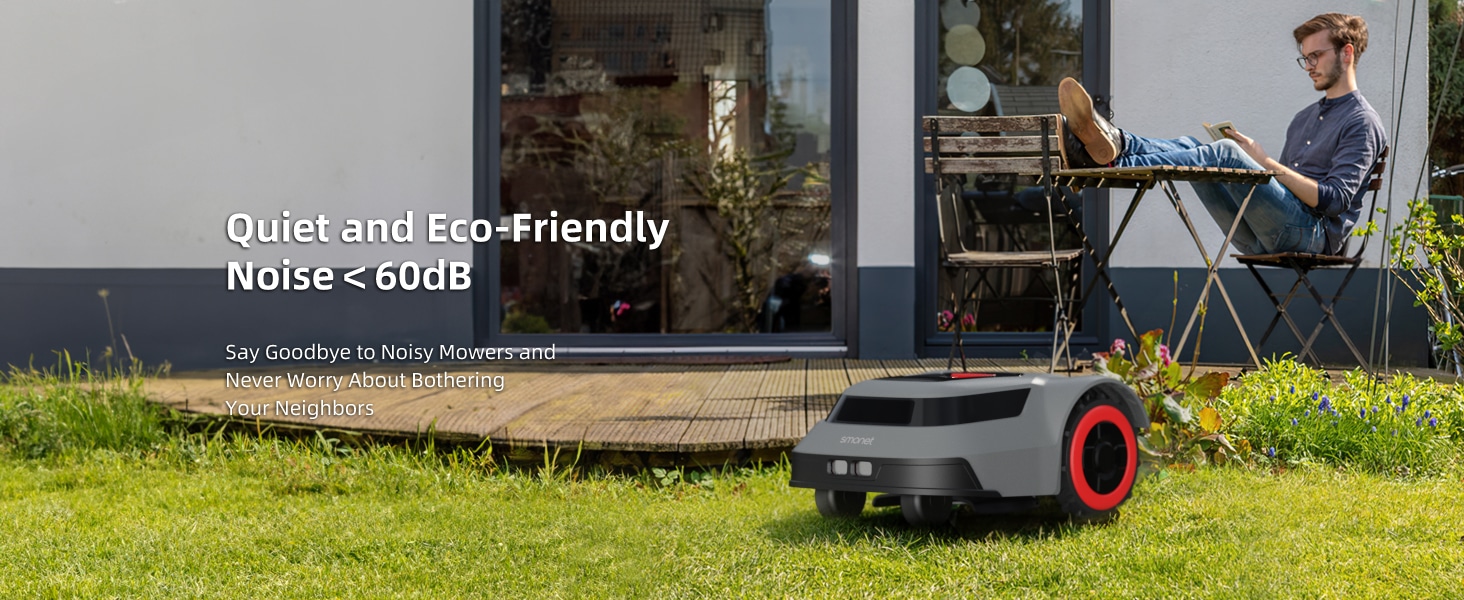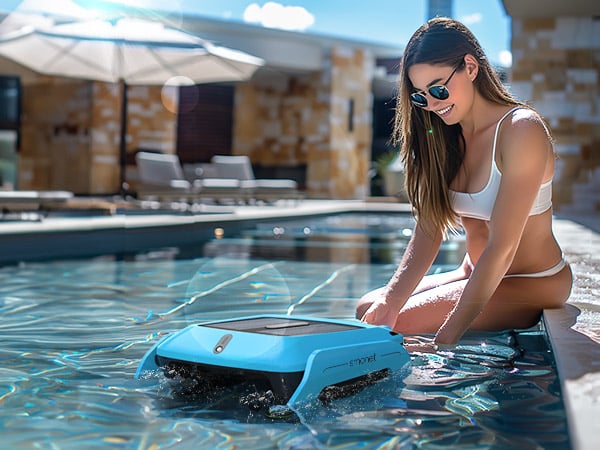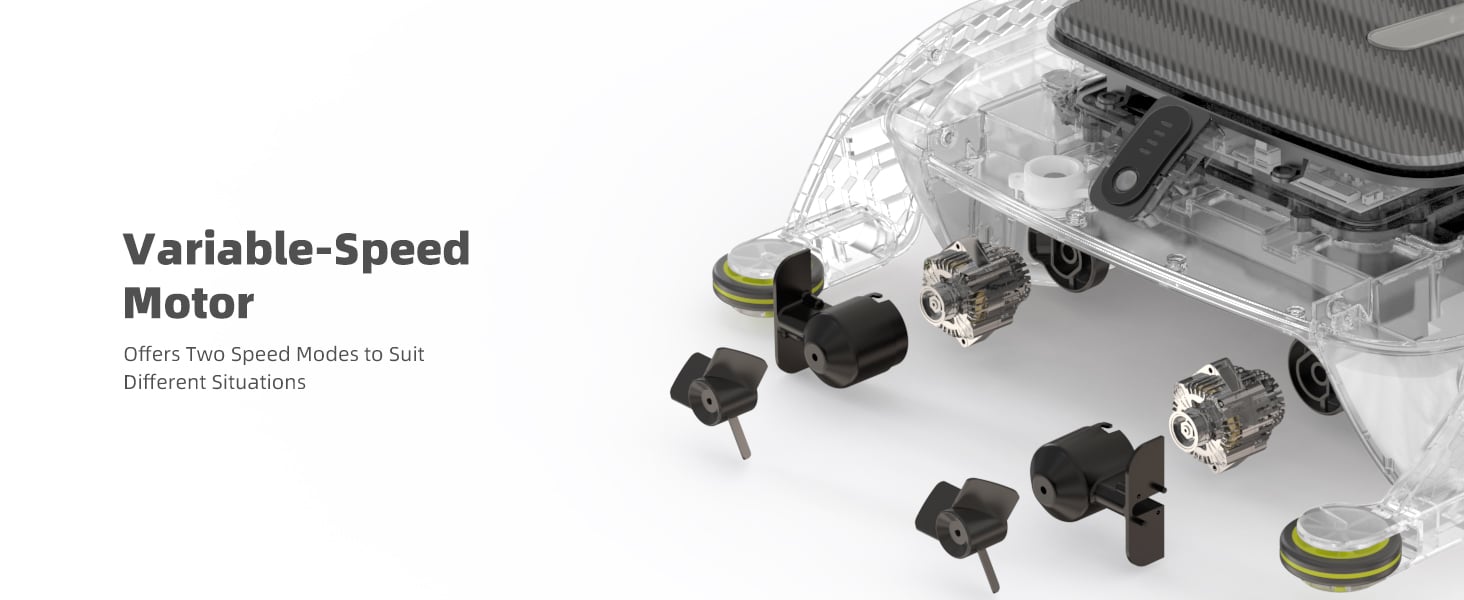Smonet Electric Lawnmower Vs Gas: Which Is Better?
Striving for a greener home has become increasingly important, and adopting sustainable strategies and eco-friendly products can help achieve this goal. One excellent example is the use of electric lawn mowers as an alternative to gas-powered ones. Not only are electric mowers environmentally friendly, but they also emit zero emissions, significantly reducing our carbon footprint. Additionally, lawn mower robots are a great option for those looking to maintain their lawn while minimizing their impact on the environment.
These days, electric lawnmowers are becoming increasingly popular due to their environmental benefits. They are not only eco-friendly but also quieter than traditional gas mowers, which reduces noise pollution in your neighborhood. Additionally, these mowers require less maintenance, making them more convenient. Charging the batteries is all you need to do, instead of refueling with gas. This highlights the shift towards cleaner, greener methods. Moreover, lawn mower robots are easy to store, with most models designed for compact, vertical storage to save space in your garage or shed. As we become more focused on sustainability in our everyday lives, the growing popularity of autonomous lawn mower confirms their place in the green revolution, making them a vital component of our green household strategies.
Consumer Reports utilizes a meticulous testing process to assess electric vs gas lawn mower for their performance, efficiency, and convenience. In this process, we conduct various assessments, such as analyzing the cutting performance of each mower on grass of different lengths and thicknesses, and even under different weather conditions. We also evaluate the handling of each mower, including its ease of maneuvering, speed control, and overall comfort during usage. Battery life and power are highly significant measures for small electric lawn mower, and we analyze battery runtime, recharge speed, efficiency, and longevity. Noise level tests are conducted to measure the sound produced by each mower, which is a crucial aspect, especially for residential areas. In terms of maintenance, we examine the ease of cleaning, the simplicity of blade sharpening, and other necessary maintenance tasks. Additionally, we review the safety features of each mower to ensure that they meet the optimal safety standards. Our goal in conducting these extensive evaluations is to provide consumers with the most comprehensive and useful information that can guide their purchasing decisions.
In our evaluation of gas and electric lawn mowers, we delved into several key factors to provide an inclusive comparison. One of the main factors we considered was the environmental impact, where electric mowers clearly outshine gas mowers, offering an emission-free mowing experience. We then looked at operational noise levels, noting that best robotic lawn mower operate with significantly less noise, making them a more neighbor-friendly choice. The convenience factor was another major consideration; electronic lawn mower scored highly, requiring only a charged battery to commence operation effectively replacing the need for cumbersome gas refuels. Additionally, the maintenance of both varieties came into view. Unlike gas mowers, electric ones demand merely standard cleaning and occasional blade sharpening, presenting a simpler maintenance regime. Lastly, we considered the cost, with the upfront price of electric mowers often being higher, but these costs can be offset over time through minimal upkeep and zero fuel costs. Conclusively, it was evident that while both types have their merits, smart lawn mower edge forward with their eco-friendliness, quiet operation, convenience, and minimal maintenance needs.
Uniform Trimming Our uniform trimming grade mirrors how consistently a mower is able to deliver a level and smooth surface across your lawn.
Gas mowers outperform electrics when it comes to consistent cutting, achieving an average score of 4.7 as opposed to electric’s 4.4. All the gas mowers we tested fell within the upper half of our grading scale. (The lowest uniform cutting grade for a gas mower was a respectable 3.5.) Electric mowers exhibited a wider scoring range (from 5 down to 2). The takeaway: Although numerous autonomous lawn mowers are capable of rivaling the top-performing gas models in uniform cutting (just over half of the electric mowers tested received an excellent score in this aspect), the likelihood of randomly selecting a gas mower that produces a precise cut is significantly higher.
Clipping Disbursement advocates for leaving grass clippings on your lawnmower electric start to serve as natural fertilizer. We assess the distance and uniformity with which clippings are spread from the discharge chute.
The scores for clipping disbursement are almost equal, resulting in a draw. However, a few electric models performed so poorly in this test that it brought down an otherwise decent average. The majority of both types of models landed in the top category for this test.
Mulching quality depends on how finely grass is clipped and how uniformly it is spread across the lawn mower, so we test for both factors to ensure the best results.
Smonet automatic lawn mower robot parts are superior in terms of operation, with an average score of 4.5 compared to gas mowers which have an average score of 3.9. Additionally, some gas mowers performed poorly when it came to operation, with the lowest score being a mere 1.9. However, no electric mower scored below 3.3 in operation.
Smonet eletric lawn mower, with a substantial score of 4.5, have a clear edge over their gas counterparts in terms of noise levels. This makes them a preferable choice for maintaining peace and tranquility in your neighborhood.
We measure the noise levels of commercial electric lawnmowers by taking readings from both the user’s ear and 25 feet away to consider the impact on neighbors. Models that score fair or poor in our tests produce noise levels that exceed 85 decibels at the ear, a level at which it’s recommended to use hearing protection. Unlike other scores, the noise score ranges from 0.5 to 5.5.
When deciding between gas and Smonet electric robot lawn mower, your choice depends on your specific needs. According to an evaluation by Consumer Reports, gas mowers perform well in areas such as uniform cutting and collection efficiency. However, electric mowers are eco-friendly, operate quietly, require simple maintenance, and are easy to use. Ultimately, the decision comes down to what features are most important to you and your circumstances.
Determining the ‘better’ option between gas and electric mowers is, therefore, a subjective matter. If environment-friendliness, noise control, and convenience are your priorities, an automatic lawn mowers could be your best bet. Conversely, should your preference lean towards consistent cutting and superior clippings management, a gas-powered mower may be worth considering.
Ultimately, the guide to sustainable living involves making conscious choices that align with not only our personal preferences and needs but also the broader perspective of environmental care. As such, the eco-friendly products we choose and the greener strategies we adopt at home count significantly towards achieving this objective.
Prime Day OFF
Until the End
-
Master Of Cleanliness: Visual Guide To Recognizing And Understanding Your Electric Pool Cleaners
-
Making the Right Choice for A Best Keypad Door Lock: A Guide Based on Material Consideration
-
The 7 Most Common Types of Locks for Home and Office Security
-
Door Knob With Fingerprint Identification- The Future Of Home Security
-
Selecting the Ideal Digital Door Lock Style and Color for Your Abode
-
Evolution Of Security- Smart Door Key Lock
-
Mailbox Digital Lock- Reinventing Mail Security In The Digital Age
-
Exploring Alternative Unlocking Solutions - Smart Lock Fingerprint Cards and Wristbands
-
Touch Id Door Locks- Next-Generation Security At Your Fingertips
-
Smonet Home Door Lock- The Future Of Home Security















